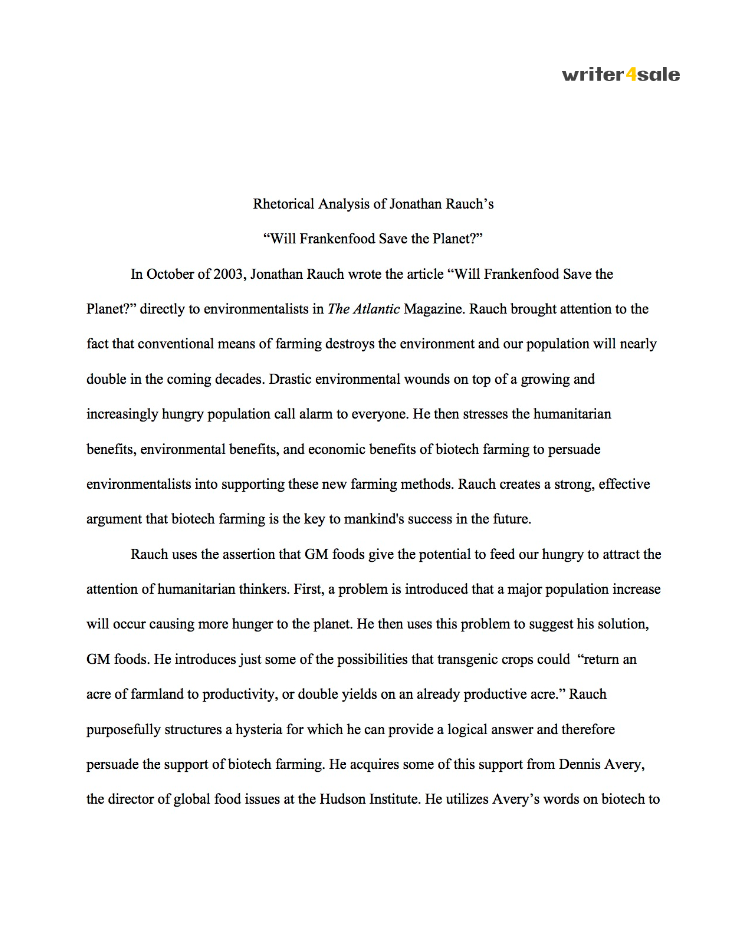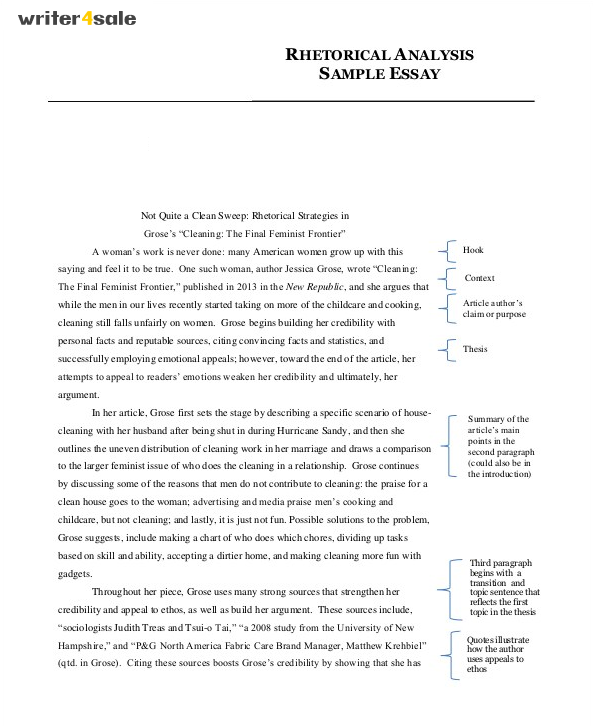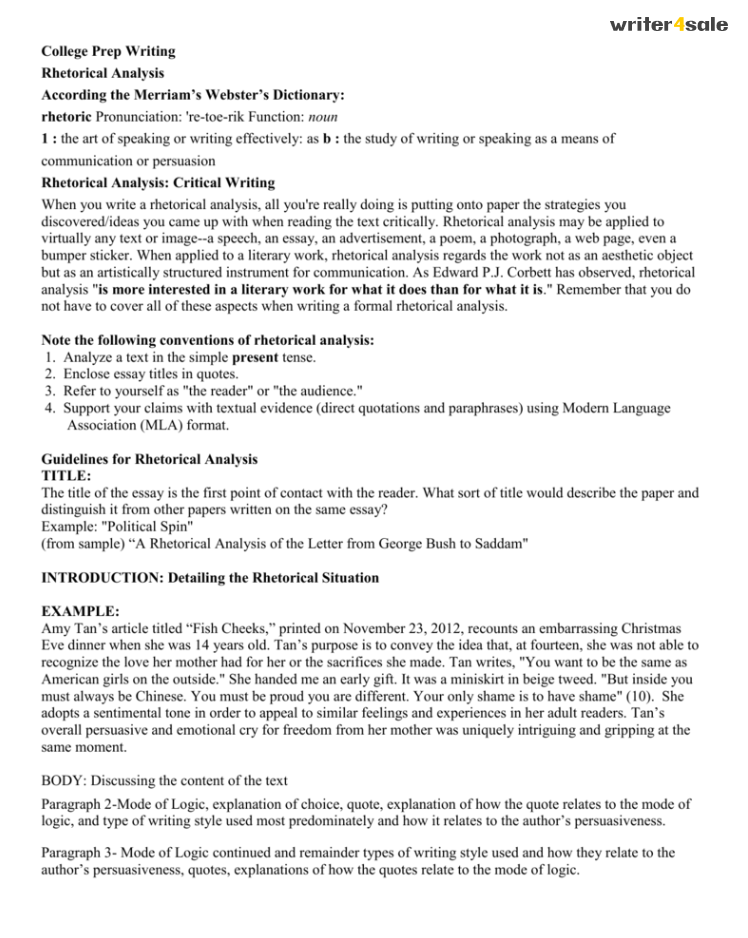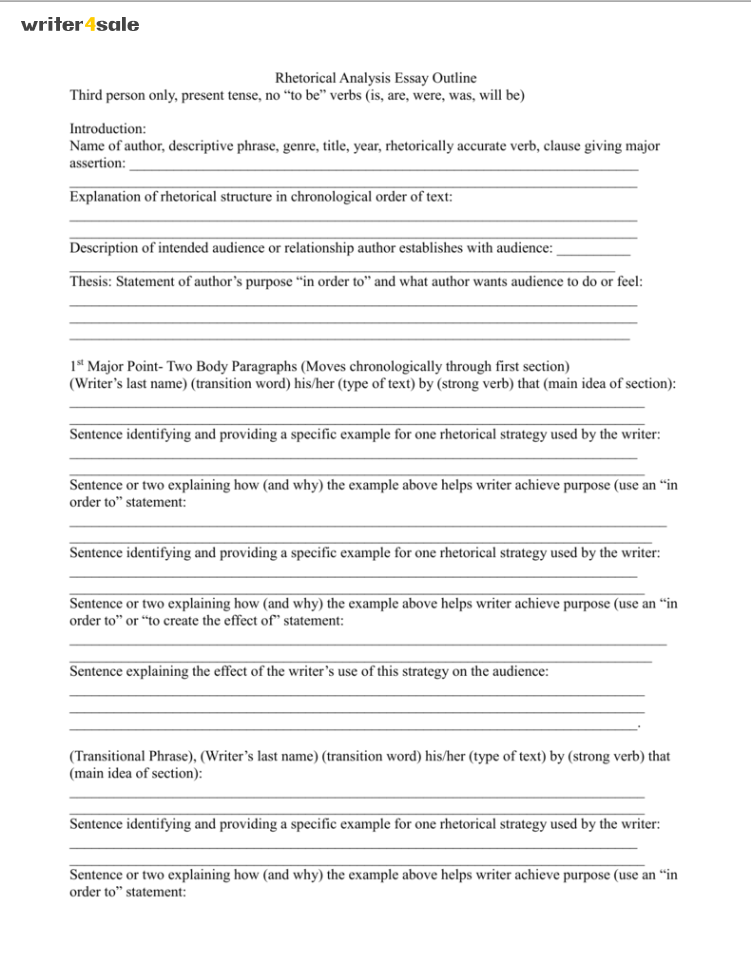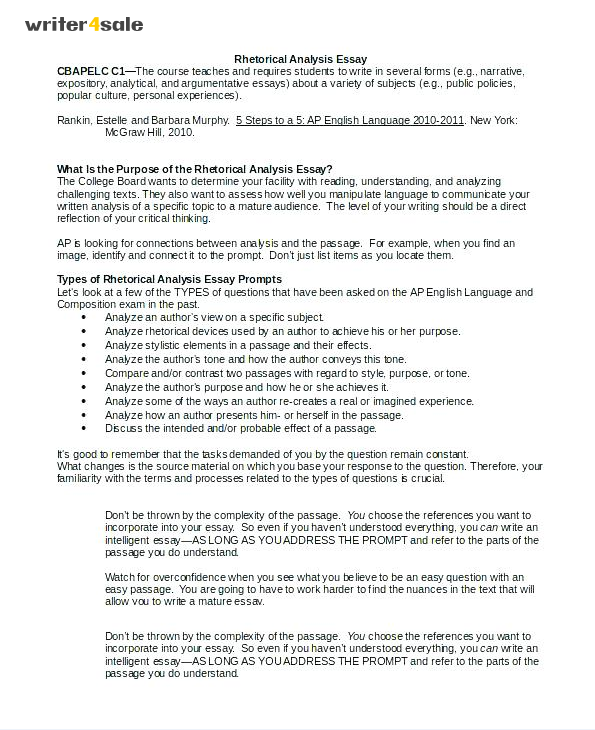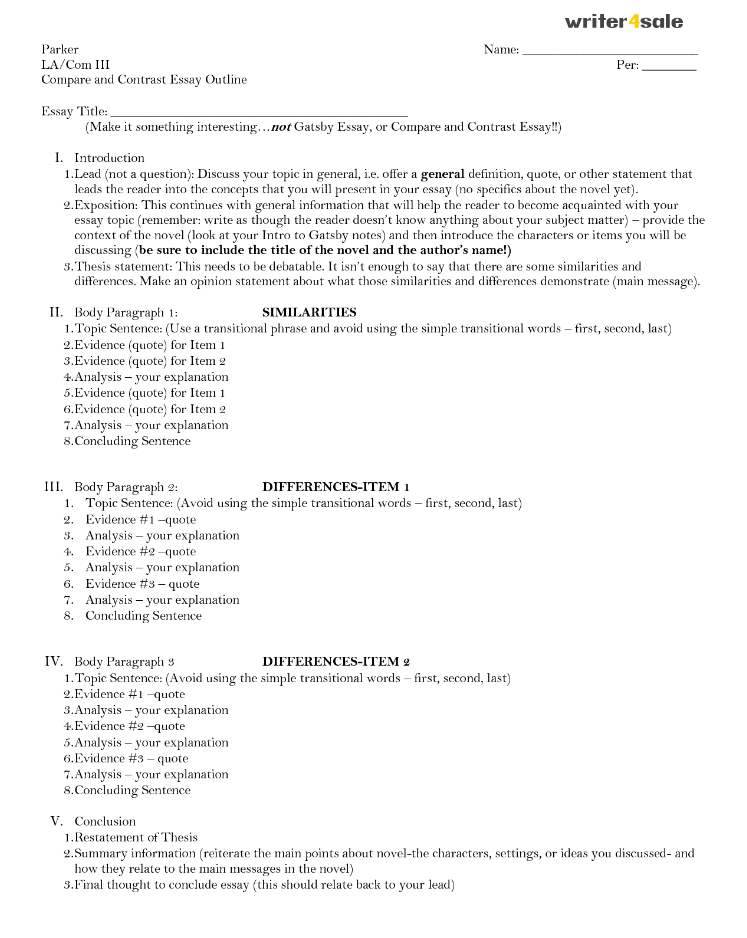A rhetorical analysis essay is one of the most difficult types of writing, which urges the student to look at the matter in all the details and to prove a certain point of view by using various persuasive techniques. In other words, such an essay means that you need to write about writing, dream about a dream, teach a teacher, etc. A rhetorical analysis paper is often given as a part of an AP English exam.
Your main goal is to write an informative paper dividing all the words and phrases that the author has used in order to distinguish all the persuasive elements. One of the best examples is speeches of public figures, especially authorities. If you want your evaluation to be strong and powerful, you need to select an article or piece of performance thoroughly. Then it is necessary to analyze every written section, their links and relations.
As with any other paper, the main goal of any student is to deliver an outstanding paper. If you want your rhetorical analysis essay to be smooth and winning, here are the questions you should answer:
- What situation is described by an author of the original article?
- Who is the author/speaker?
- What is the basic goal of the chosen piece of writing/article or speech depending on the primary intentions of its author?
- Who makes up writer’s target audience? Distinguish it depending on nationality, age, gender, location, tastes, interests and other possible factors;
- What is the main message of the chosen piece?
- What communication methods were used and what they tell about the surrounding, who used those methods?
If we were to distinguish the main principles or pillars of a rhetorical analysis essay, they would be as follows:
- Outstanding grammar;
- Clarity of the text;
- Straight-to-the-point;
- Following a clear structure;
- Preferably written in Present;
- Have a clear connection with an analyzed text or article.
Samples
Things to keep in mind: getting ready
Now, when you know what a rhetorical analysis is, it is a right time to get familiar with how to make it outstanding. Always remember that the preparation is as important as writing itself. If you want your introduction to be catchy and your whole text –readable and smooth, you need to know how to structure your paper well in advance.
That is why every student needs to:
- Use ‘SOAPS’, where:
- S means the subject of the paper;
- O means occasion, i.e. the things, which made you write on a particular topic;
- A means audience;
- P is for purpose, which means the reasons why you decided to create such a paper. For example: to provide supporting evidence, to describe or explain something, etc.;
- S means the speaker (author);
- Remember rhetorical elements, such as appeals (consisting of ethos, logos and pathos) and reading all the possible information on those three elements and a writing style. It includes such elements, as language, voice, dialect, tone and so on;
- Understand motives of the speaker to choose particular communication methods for a certain target audience. Here is where your analysis begins, because you should evaluate all the strategies the speaker used and not just the summary of an analyzed piece;
- Answer the following basic questions:
- How the used rhetorical techniques help the speaker to communicate with readers and to achieve the goal of the writing?
- Why the speaker chose these techniques for communicating with the audience in that particular situation?
How you should start your rhetorical analysis essay
It doesn’t matter whether you are a high school, a college or a university student: you need to pay proper attention to the organization of the paper. It is even more important for rhetorical writing, because it is one of the most challenging assignments you will ever face.
Make sure you have an essay example, as it will give you a chance to follow an accepted structure and to understand peculiarities of the assignment. Luckily, the structure is quite similar not depending on the topic, so if you master it once, you will be able to work on the task in future with ease.
Luckily, there are many ways how you can catch reader’s attention from the first line. One of the most effective and popular ones is a so-called hook. It is a sentence, which contains a joke, an interesting fact, life story or a rhetorical question. However, your hook should be relevant for the topic. This means that you shouldn’t start your essay with a joke if you are writing about war.
Here are other types of hooks you may use:
- A catchy story;
- Anecdote;
- Statistical fact;
- Quote;
- Line from a poem;
- Comparison;
- Contradictory fact;
- Questions;
- Metaphor.
Pick a side
It may be quite an obvious advice but you need to understand that it is crucial for the outcome of your paper. This means that before starting your work you must decide what your position on the discussed matter is. You should reflect it in your thesis statement (a final sentence of the introductory paragraph). For example, if you need to analyze president’s speech, your thesis should contain your interpretation of it. It should be a brief and a well-supported point of view. This means that you need to use multiple strategies and instruments to prove the reader that your point of view is correct.
When working on a thesis statement, never use personal pronouns and be as objective, as possible. You need to make the reader want to believe you!
Analyze sources properly
At first you need to conduct a deep research on the topic to find solutions of the problem. However, it shouldn’t be complicated. Right after completing a thesis statement, write down all the solutions you have found and offer readers to make up their own mind. Don’t forget to use various techniques to support the chosen idea.
Select your strategy
Every academic work should be based on a certain strategy. In fact, it is a sort of a skeleton, which will allow you to grab and hold attention of the audience. If you write a rhetorical analysis essay, your strategy should be based on providing clear facts and using academic and understandable language.
What is ethos, pathos and logos?
At first you may think that these are Harry Potter’s magic spells. However, they are the three pillars, invented by Aristotle to be persuasive and achieve any goal in a debate. They have been known for centuries and still remain the main ingredients, used by students across the world.
That is why every author, not depending on the task and its type, should use these effective strategies:
- Ethos is about ethics. This term means credibility of provided information and arguments. If you want to succeed, you need to prove why the audience should believe you;
- Pathos is about emotions. You need to stir emotions of the audience in order to be heard and noticed. If the reader remains indifferent, he or she will most likely forget about your essay right after putting it aside;
- Logos is about rational thinking. To influence minds of the reader you need to provide logical conclusions and truthful arguments.
Don’t worry if you don’t understand the above strategies. It takes time and practice to be able to achieve outstanding results in persuading the opponent. If you want to improve your skills or don’t have time to complete the assignment, you can always contact our writing service. It is the best on the market and we hire only expert writers, who can cover any subject.
Once you are done with the preparation stage, it is a right time to write an outline.
Writing an outline
If you read blogs and articles about writing, you probably know that creating an outline is a must. It is a great instrument to avoid chaos in your paper, because you have a detailed plan of what to write about without a need to wait for a muse!
Here are important tips you may need:
- Collect information
At first you need to examine your target audience, its preferences and background. Then you can choose a writing style and decide how you paper will look like;
- Write introduction
The first paragraph of your work is called introduction and it sets tone for the future work, because it contains all the ideas you want to discuss. In this section you need to explain the reader why the topic is important. You should also write a thesis statement. To do it you need to choose the main idea out of your arguments and write a single sentence, which presents that idea to your audience. Thesis is very important, because it gives the audience an idea of what you plan to discuss. Don’t forget to use hooks, i.e. rhetorical questions, jokes, personal examples and so on.
- Body paragraphs
Any assignment should contain body paragraphs and they are the most important part of the whole work. However, if you pay careful attention to the preparation stage, it won’t be difficult for you to cope with this stage.
You should base your body paragraphs on strong arguments, backed with evidence. All these arguments you can find on the internet or at the library but they should be credible and reliable. They should also be fresh and supported by appropriate quotes and citations. If you lack ideas, add views of the opposite side but make sure that they don’t have a strong support.
When you work on your body paragraphs, make sure you organize them by rhetorical elements and divide into epos, logos and pathos. However, always avoid wordiness and stick to the point. Remember, every body paragraph should support a single idea and evidence, so don’t try to fit all your thoughts into one section.
- Conclusion
The key goal of your conclusion is to make a summary of all the ideas you have mentioned in the text. You should also restate your arguments and ideas, and paraphrase thesis statement. All the information in this section should be brief and clear, without any new details and facts. If your topic is too wide and you couldn’t cover it throughout your work, you can mention further research in this section.
Close your conclusion with a call-to-action to motivate the reader and leave him with a pleasant aftertaste. You can also add a question and a forecast for the future.
Writing tips for an outstanding rhetorical analysis essay
We have made a list of the most important things you should use in your essay. They include:
- No new facts in your conclusion. Just paraphrase and summarize all the mentioned facts in the essay;
- Remember, the point of such an essay is to analyze a particular piece, not to argue about it. Always stick to objectivity;
- If you are writing an academic work, try not to start your conclusion with ‘In’. It looks clumsy and a bit childish;
- Check your draft several times before delivering, because it may contain slight mistakes and misprints you have missed out. There are grammar checkers online, which can greatly help;
- Read your final paper at least two times before the delivery. You can also ask someone else to read your essay. In such a way you will get fresh ideas and a side look;
- Get familiar with online examples. It is a free and legal way of getting an idea on how your essay should look like. You can not only examine its structure but also style, different language maneuvers and literary tools. You can even find an example on your topic and get fresh ideas without a risk of being accused in plagiarism!
Where to look for help?
We strongly believe that using rhetorical essay examples is a great way not only to improve your writing skills but also to save time and nerves on writing the assignment anew. Moreover, if you are an inexperienced student or English is your second language, you may need quality support.
We are a team of professional writers, editors and proofreaders, who are always there to support and cover your back. We will make your rhetorical essay shine and present your own thoughts in the best way!



